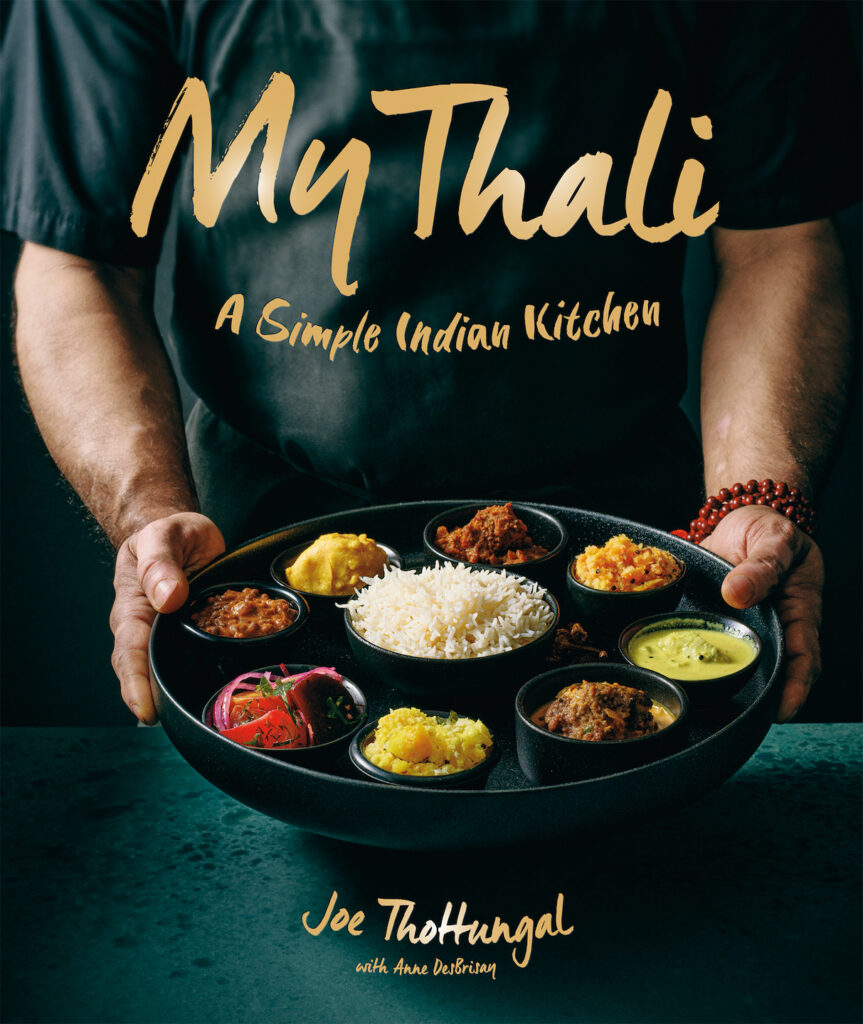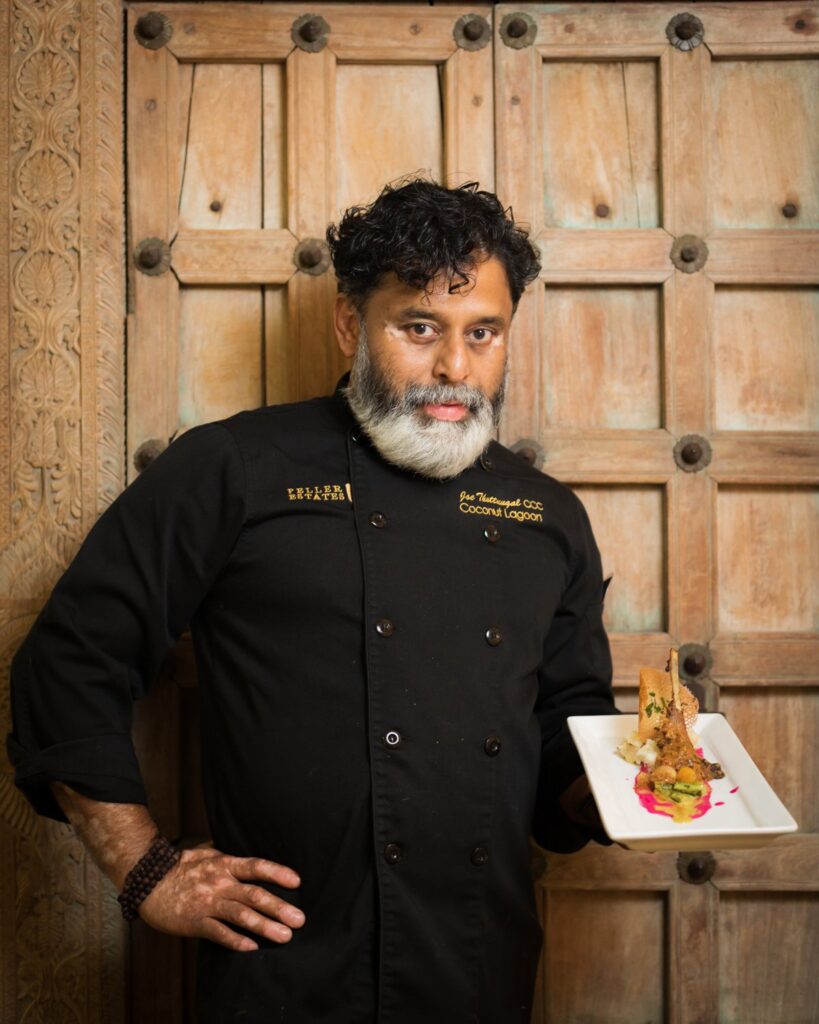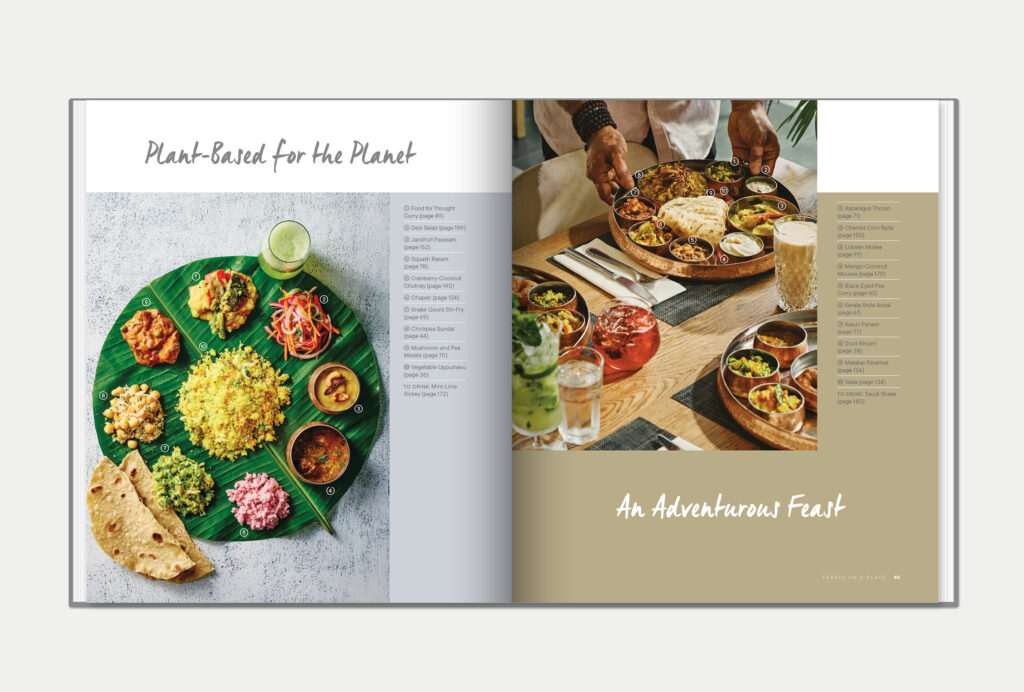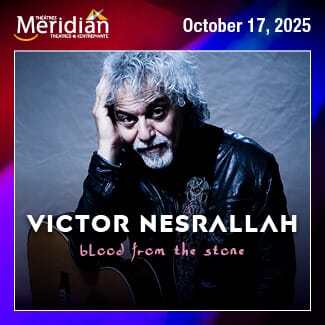Joe Thottungal’s My Thali transports the reader through an adventure for the senses. This book is a journey. The stunning photographs and collected recipes immerse readers in the fragrances and the tastes that these recipes represent. You’ll want to remain kitchen-bound until thalis (a bowl of rice surrounded by small dishes of other foods) cover your table.

Joe Thottungal’s second cookbook, My Thali: A Simple Indian Kitchen. Photo provided.
Thottungal, who arrived in Canada in March 1988, is the owner of restaurants Coconut Lagoon and Thali, as well as the director of a food security charity, Food For Thought. In his words: “This book is a gift to my adopted country. I am a proud Indian and a blessed Canadian.”
I spoke with Thottungal about My Thali and the influences that brought this transformative cookbook into the world.
What impact do you hope to achieve by publishing your second cookbook, My Thali?
To learn about home cooking. These are recipes generated when staying at home during the pandemic. We were at home, cooking. So these are not real restaurant-style recipes. These are recipes that my wife still cooks at home. I want to showcase that cuisine, that structure, and the symbolism of these dishes. I want to emphasize this way of eating as having variety. I want to showcase beautiful vegetables from India. The cuisine is from all over India: some from the north, some from Kashmir, and some from the south. This is a melting pot of all the cuisines from India and my travels. My Thali is with my family.

Joe Thottungal at Thali. Photo provided.
In your cookbook, I read that there is a philosophy behind the thali. Please describe this in more detail.
The thali is an ancient way of Indian eating. [It] has different taste profiles: You have the savoury, the sweet, the spicy, and we have textures. You can have an elaborate setting or a symbolic lunch. You think about the foundation, which is the structure of my book. The main ingredient is rice. We are rice eaters. Rice is in the middle; then you can have one or two different curries and, if you are fortunate, meat or fish. You can make it spicy, according to your individual taste. You can have a chutney, a pickled dish, a salad, a papadum for crunchiness, or bread. This is our way of eating, and we eat as a family. We never think about eating alone. Simple mindful eating, smaller quantities, more from all food groups. There are always contrasting flavours: maybe one curry with a tomato base and another curry with a coconut milk base. The philosophy of having a thali is that you take a little bit to start off, and if you like more, you can always ask. We don’t want waste. Variety is the philosophy, and conserving food—plus, it’s all about what you like and how you’re going to enjoy it.

One of the pages of the My Thali cookbook. Photo provided.
What’s your opinion about authenticity for recipes as opposed to changing the flavour palette for Canadian tastes?
I wanted to do authenticity and make it as flavourful or original as possible. We need to be aware that these are new tastes for Canadians. We are playing with flavours. A stereotype of Indian food is that it is always spicy. No, it is more flavourful. As a chef, we learn when we make a menu and ask first: what kind of people are we serving? Then we play around and tweak the menus and make them according to the needs of the customer. The customer is God. We need to appeal our menu or the dishes to at least 90% of the population; otherwise, it will be a failure. Authenticity is why I’m sticking to my origin.
What impact do Coconut Lagoon and Thali have on the Ottawa food scene?
We were influencers even back in 2004. You would only see Indian, Sri Lankan, Greek, or Italian restaurants. But my first restaurant, Coconut Lagoon, focused more on South Indian dishes from Kerala. Different regional restaurants started emerging, serving Burmese or Ethiopian dishes, for example. I was a catalyst. If you compare Coconut Lagoon and Thali, they are different concepts, too. You cannot take Coconut Lagoon and Thali away from the restaurant scene because we make Ottawa a destination for tourism.
Please share your thoughts about Food for Thought and why it is essential for Ottawa.
Shepherds of Good Hope, The Ottawa Mission, and the Ottawa Food Bank do a good job feeding the big population. Food for Thought is for the people in between—for those who cannot cook, for seniors or citizens stuck in their apartments with disabilities, and for immigrant families on welfare, lodged in a motel. We’re going to give you a warm meal. Food for Thought is there for the people who fall between the cracks.
You can purchase a copy of My Thali here. Coconut Lagoon is at 853 St. Laurent Blvd, and Thali is at 136 O’Connor St. Find out more about Food for Thought and Thottungal’s enterprising perspective.



.gif)


